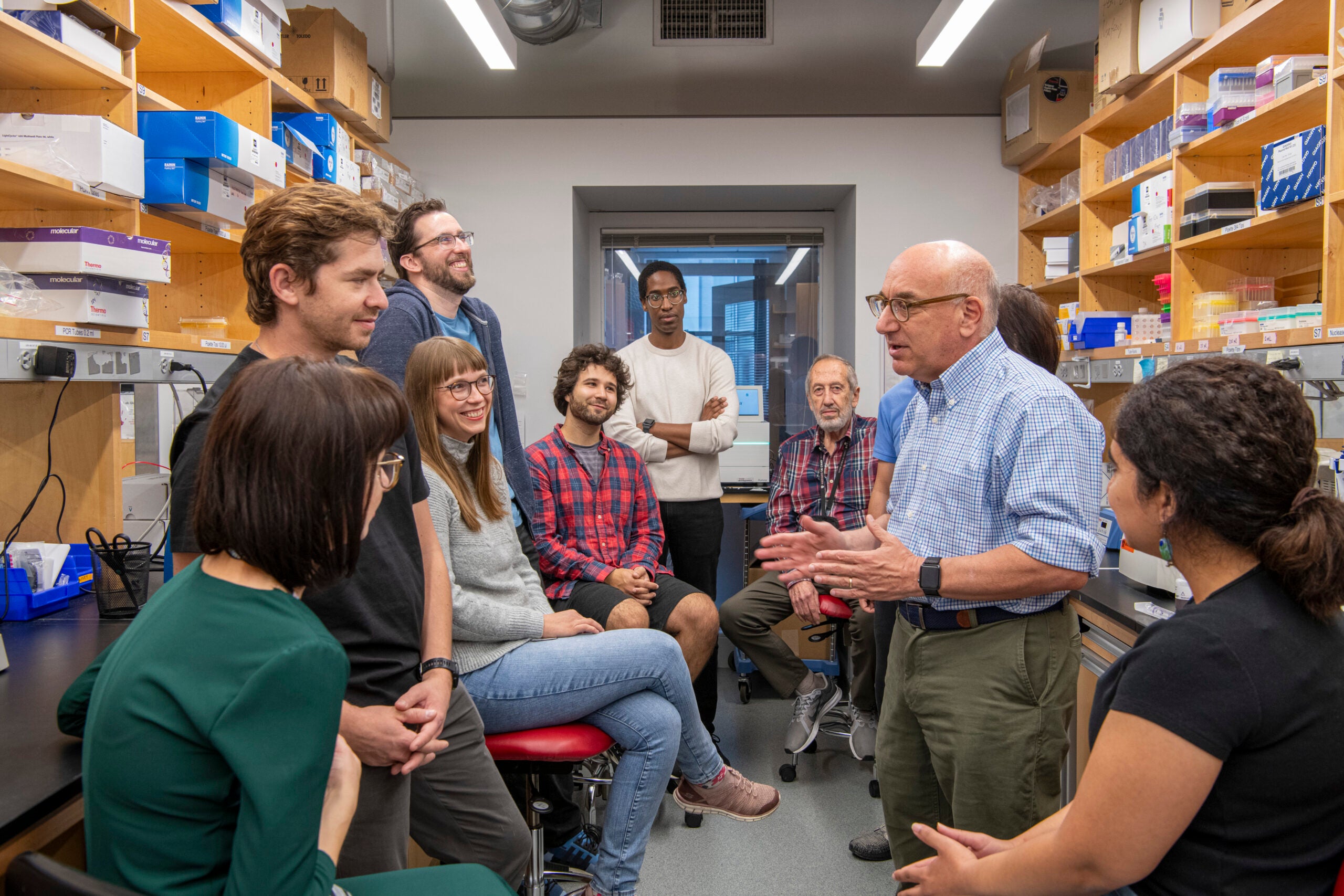Rubin Lab
Tuberculosis (TB) kills 1.3 million people each year. Our research on Mycobacterium tuberculosis focuses on its cell biology and how it causes TB, to develop new therapies. We also study non-tuberculous mycobacteria (NTM), as cases are increasing in number and hard to treat, aiming to discover new treatments through advanced research tools.
Harvard T.H. Chan School of Public Health
665 Huntington Ave.
Building 1, Room 810
Boston, MA 02115

Who are we?
The Rubin lab is a highly collaborative group of researchers driven by curiosity and a desire to positively impact public health. We are fascinated by the history of TB in humans, with evidence of infection found in mummies thousands of years old, and the unique complexity of mycobacterial cell biology, characterized by a cell wall like candle wax. Despite being briefly eclipsed by COVID-19, TB is again the world’s leading infectious killer, taking a significant toll worldwide.
Dr. Rubin’s roles as an attending physician at Brigham and Women’s Hospital and Editor-in-Chief at the New England Journal of Medicine brings a clinical perspective that informs our work. We thrive on innovative projects that bring together enjoyable and productive teams, such as our ongoing efforts to build components for a controlled human infection model (CHIM) for TB. In collaboration with Dr. Sarah Fortune (Chair, Department of Immunology and Infectious Diseases), we are developing safe strains for controlled growth and methods for detecting the bacteria during infection. These components can be assembled into a CHIM model to safely and efficiently test new TB interventions, such as vaccines.

Support Harvard Chan School
Every gift contributes to our mission of building a world where everyone can thrive. To learn more about how you can support The Rubin Lab, please contact Carter Brown.



Our Research
The impact of tuberculosis on human health is enormous. Tuberculosis kills 1.3 million people every year. Despite having had a vaccine, diagnostics, and drugs for TB since the mid-20th century, TB remains the leading infectious killer and drug resistance is on the rise. Our goal is to better understand the basic biology of this pathogen and how it causes disease, in order to develop the improved therapeutic strategies that we so desperately need to fight it.
Non-tuberculous mycobacteria (NTM) are environmental organisms and opportunistic pathogens, posing a particular risk for those with underlying lung disease or immunosuppression. These infections are extraordinarily difficult to treat. We are applying some of the tools we’ve developed to study TB to this group of organisms, to better understand their unique biology with the ultimate aim of discovering new therapeutics.
Our research focuses on deepening our understanding of TB and NTM infections to enhance our ongoing drug discovery efforts. As we progress, we continually develop innovative methods that enable us to explore and answer emerging questions.
Media Spotlight
Assessing health care challenges for next U.S. president, featuring opening remarks from Eric Rubin

Featured Publications
- NEW PRE-PRINT! Development of an Engineered Mycobacterium tuberculosis Strain for a Safe and Effective Tuberculosis Human Challenge Model
- A tRNA modification in Mycobacterium tuberculosis facilitates optimal intracellular growth
- Biotin-dependent cell envelope remodelling is required for Mycobacterium abscessus survival in lung infection
- Peptidyl tRNA Hydrolase Is Required for Robust Prolyl-tRNA Turnover in Mycobacterium tuberculosis
- Spatiotemporal localization of proteins in mycobacteria

